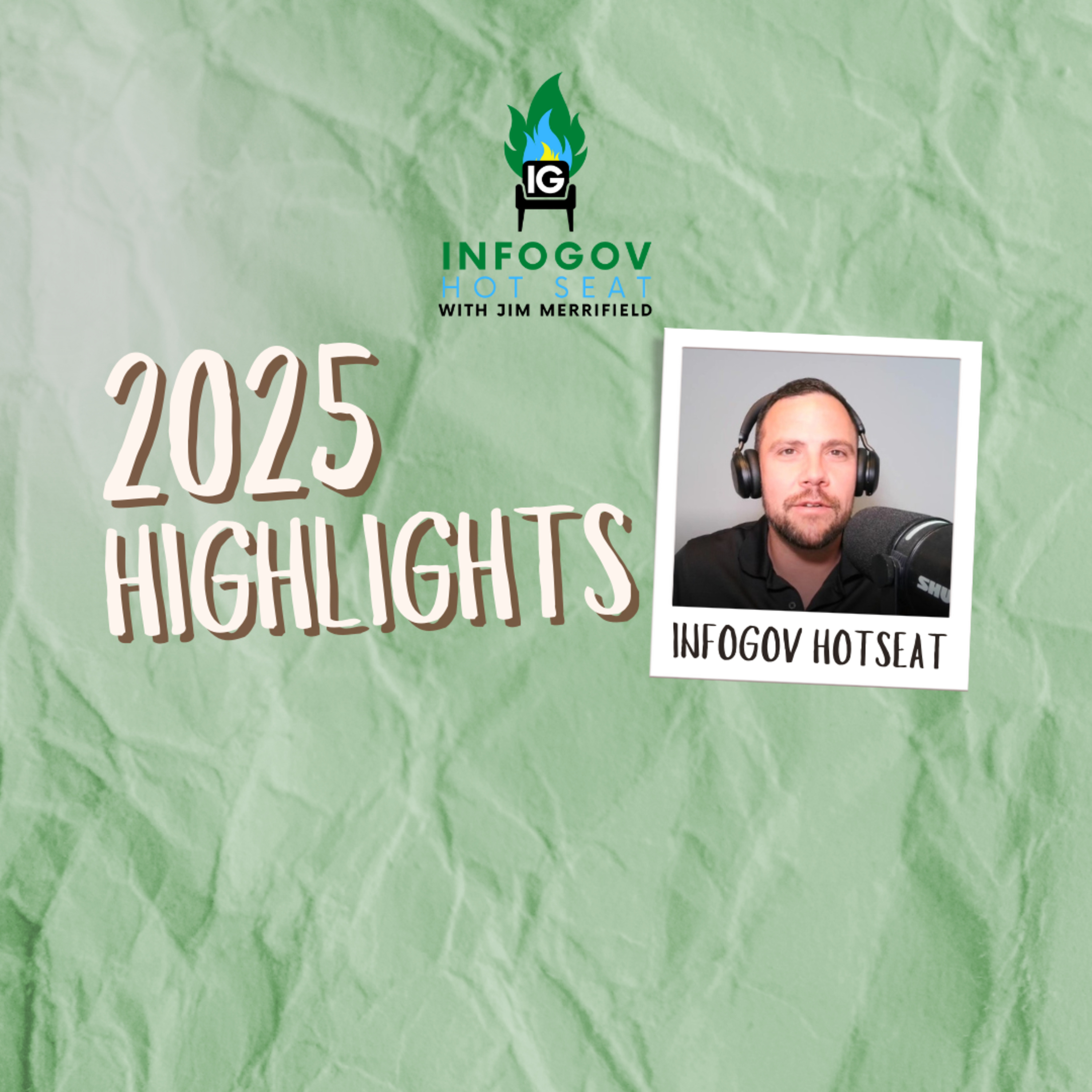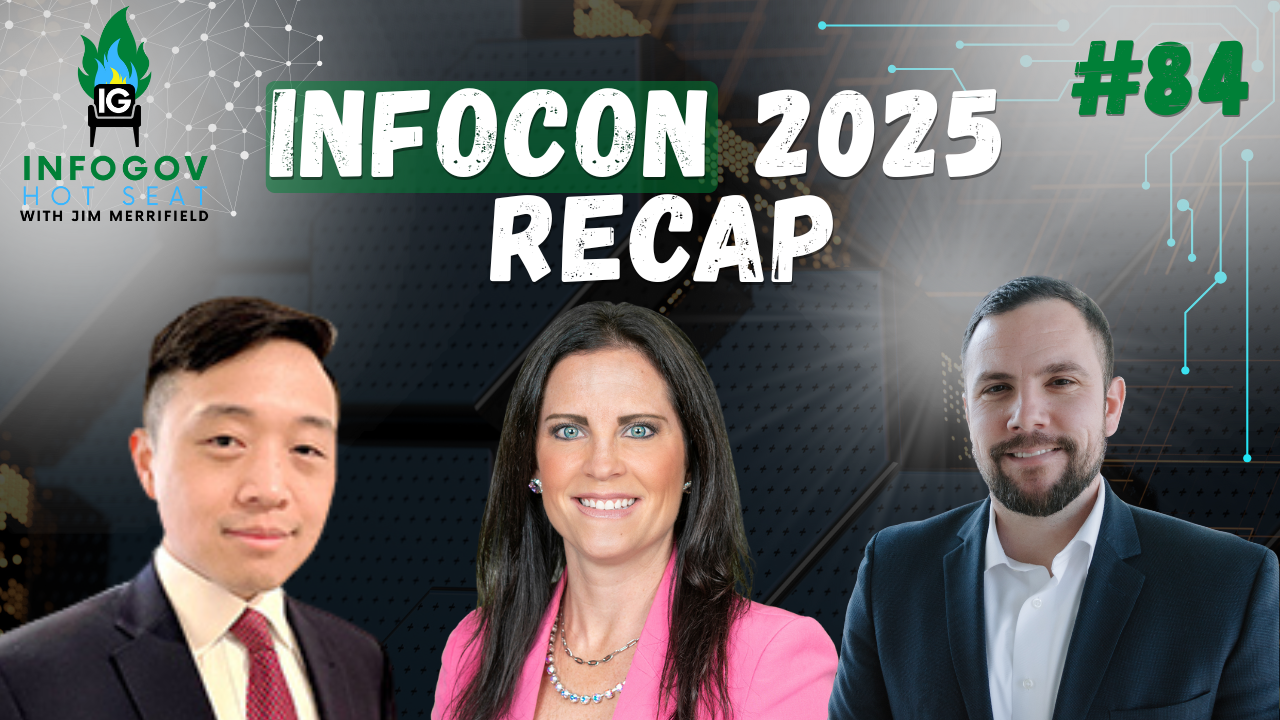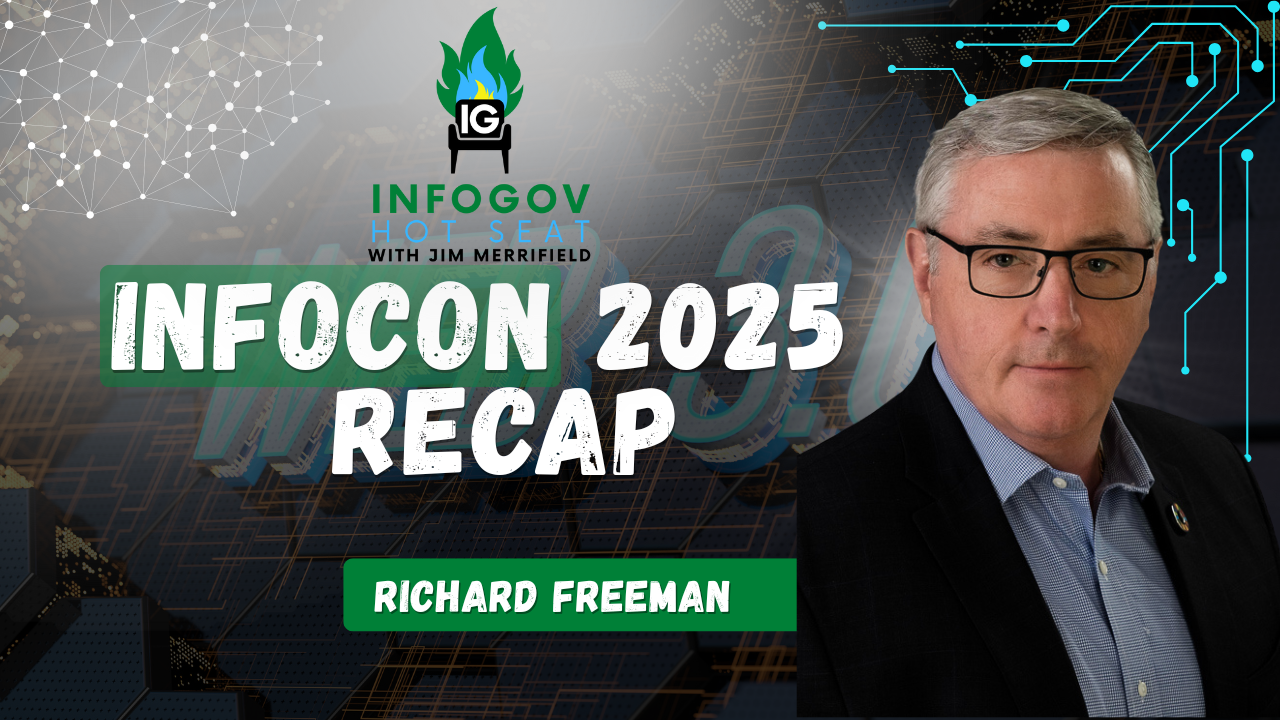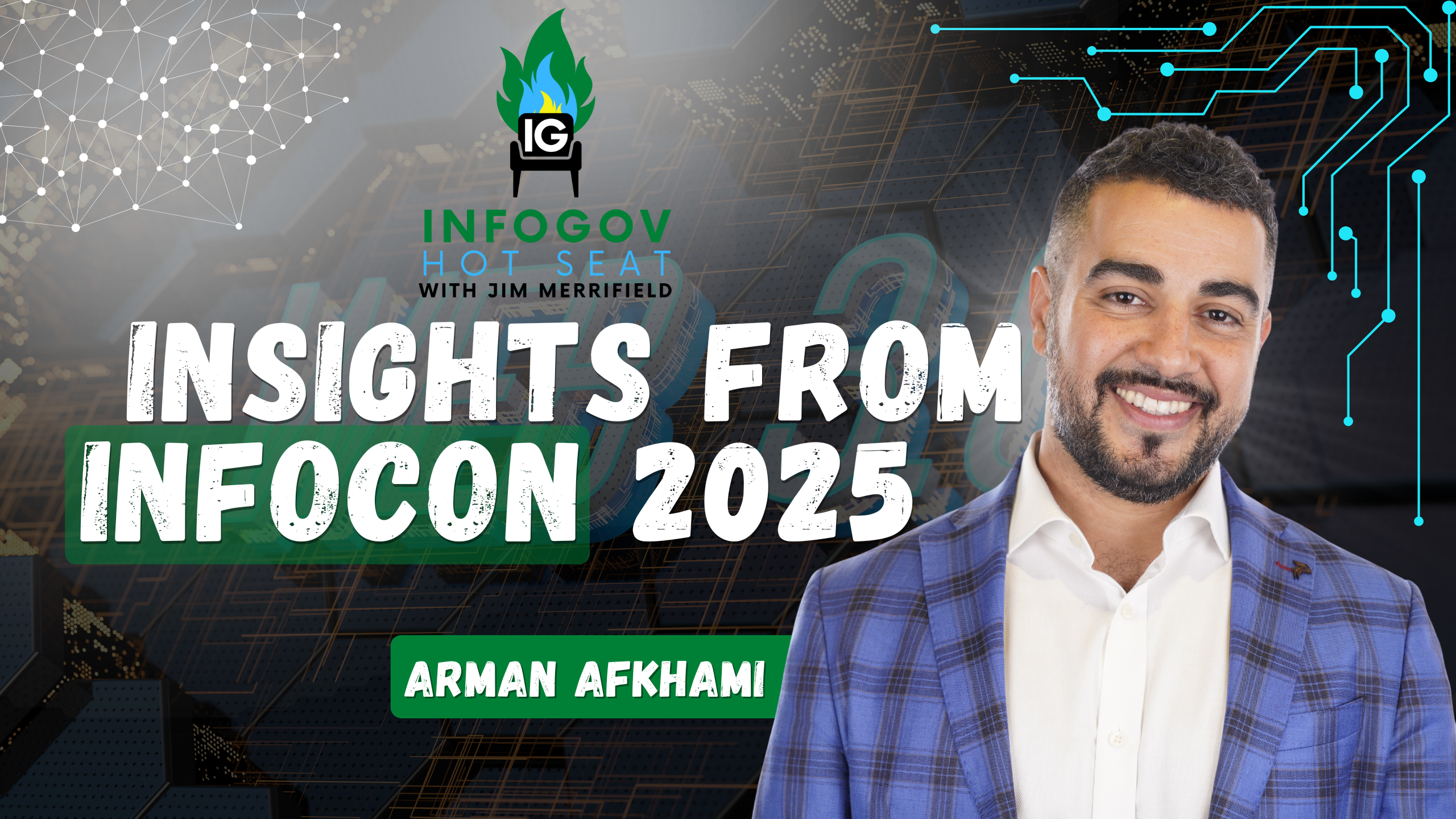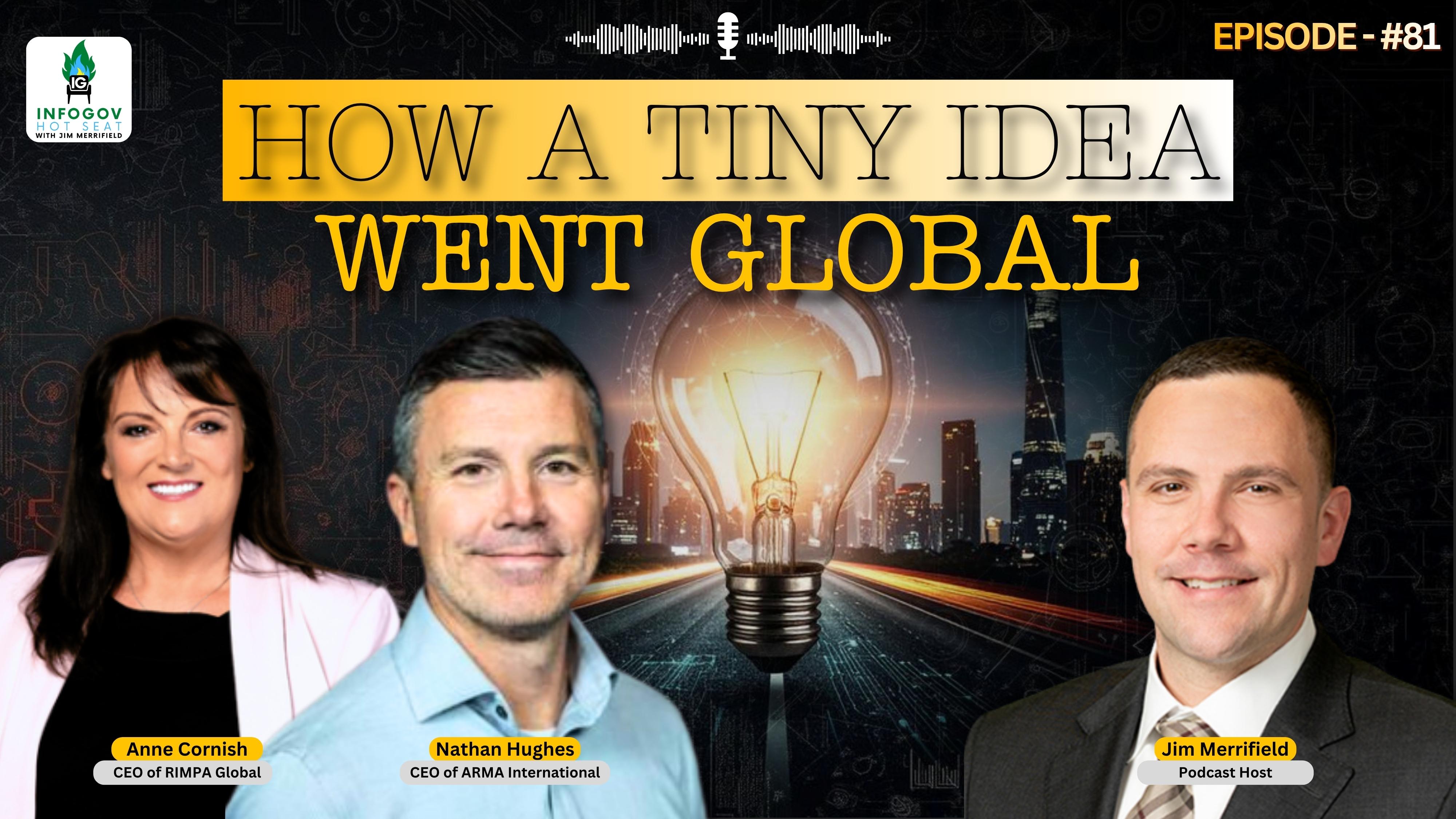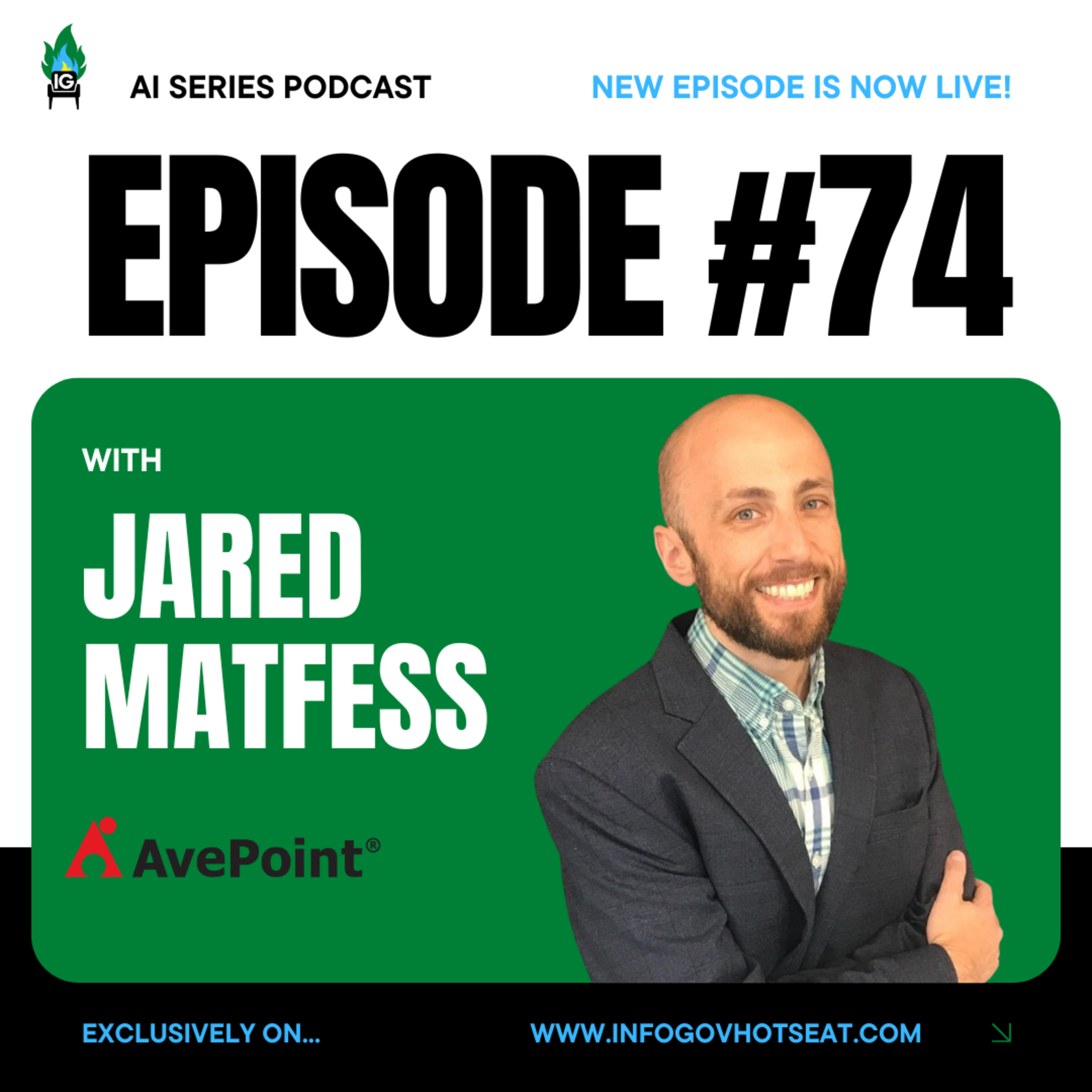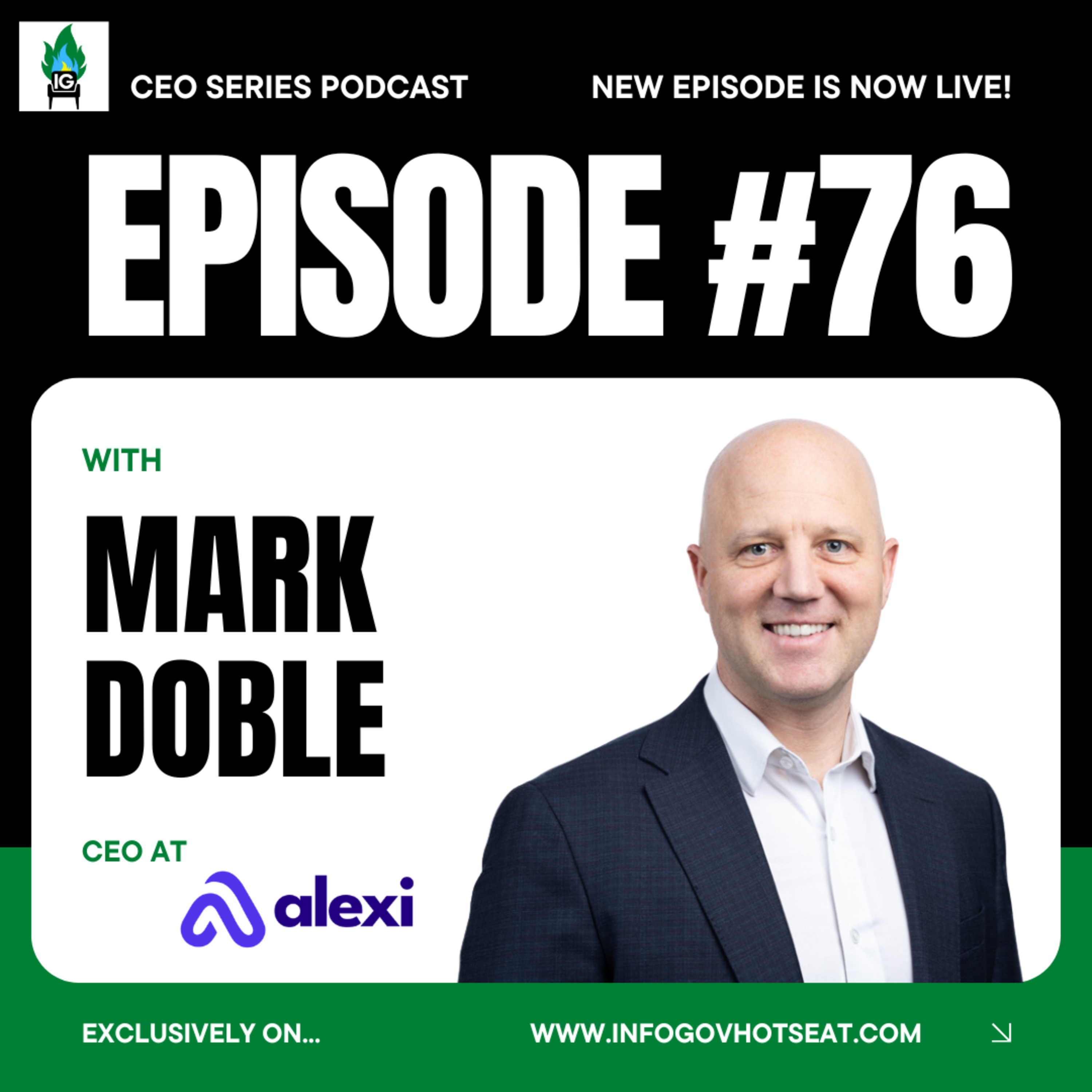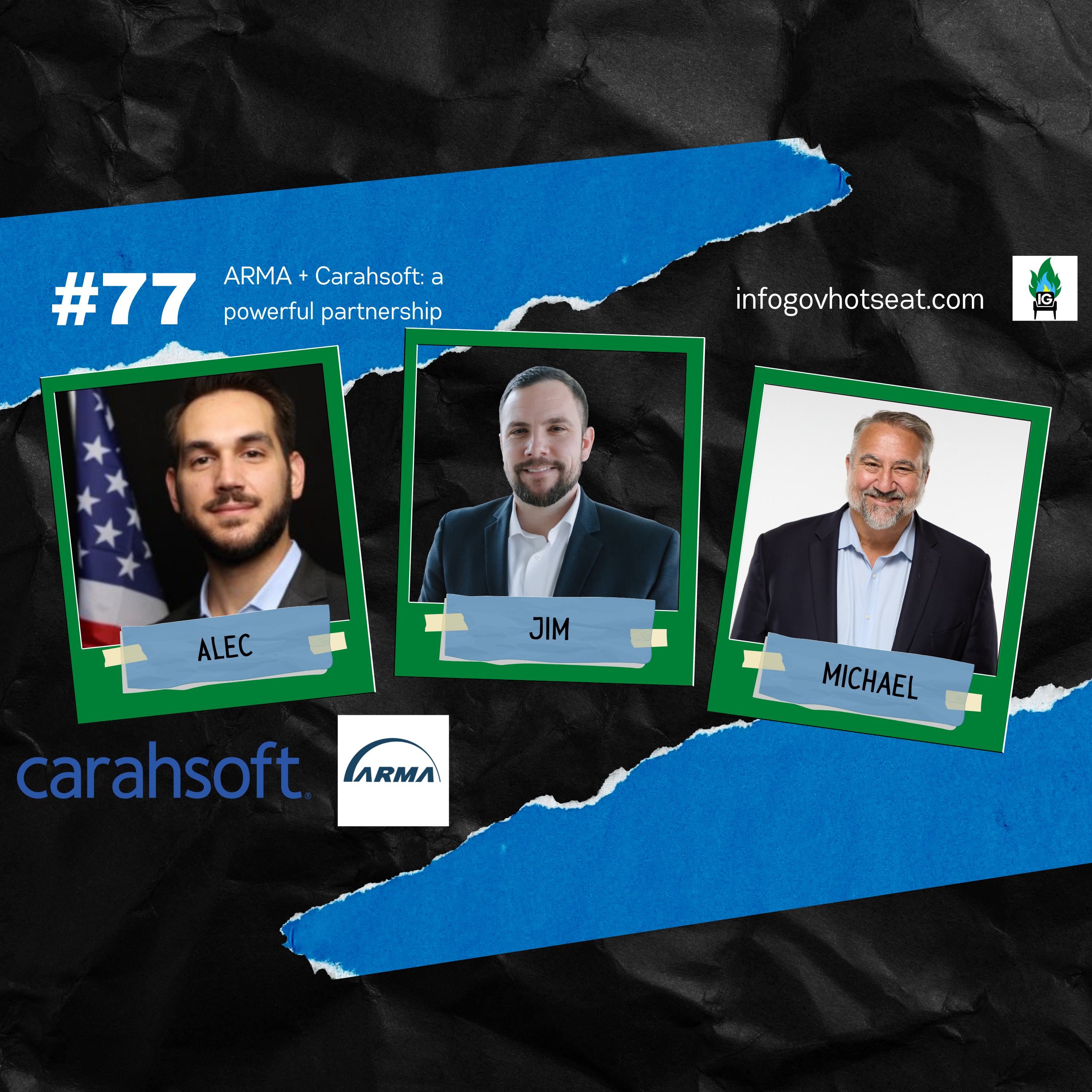IGHS34 - The Rise of In-Place Data Management with Kaan Volkan
Kaan Volkan discusses his entry into the information governance industry and the importance of managing data in place. He explains the three categories of in-place data management solutions and the challenges they address. Kaan also shares his use of AI tools for transcription, background editing, and content recommendations. He emphasizes the value of authentic and human-driven content. Overall, the conversation provides insights into the evolving landscape of information governance and the role of technology in streamlining content management.
Jim Merrifield (00:02.282)
Well, hello, welcome to the InfoGov hot seat. I'm your host, Jim Merrifield and with me today is Kaan Volkan at ZL Tech. Welcome, Kaan
Kaan Volkan (00:11.032)
Hello, hello! Good to be here!
Jim Merrifield (00:13.514)
Yeah, it's awesome. Thanks for spending some time on the hot seat with us. We're gonna ask you a few questions, get to know you a little better. So let's kick this thing off. Can you please give us a brief introduction of your role, your current role, yourself, and one fun fact about yourself?
Kaan Volkan (00:20.248)
And then...
Yes, please.
Kaan Volkan (00:31.608)
So I work with ZL Tech. ZL is a technology provider. What I really do is I'm the guy who sits behind the desk and just researches every information governance technology out there.
I spend most of my time reading those technical documents. Everyone hates reading. That's really what I do. And then once I figure out, hey, what's going on with these technologies, I go to LinkedIn and I go to our internal teams and I tell them all about it. Hey, this technology is amazing at doing data capture, horrible at classifying. And here's the reason why. So I'm kind of that guy in between the technology.
itself, like reading the boring documents and then just poking your butt. Yeah. Fun fact, I get this a lot whenever I go to ARMA conferences people tell me, hey you kinda look a little...
I actually did seven years of martial arts so it makes me somewhat happy, right? I could never imagine being as good as Conor McGregor but this be the life.
Jim Merrifield (01:54.154)
That's awesome, yeah you do look a little bit like...
Kaan Volkan (01:57.4)
If I have a mohawk, right?
Jim Merrifield (01:59.274)
And so you did seven years in martial arts, right? So I guess I gotta be nice to you.
Kaan Volkan (02:06.744)
One thing you'll learn about most martial artists is... Yeah, one thing you'll learn about martial artists is that they really are some of the least aggressive people, especially if they've done it for a long time. Because you know how easy for things to break. So like my take is I'll run. I'll run. Also, this is America.
Jim Merrifield (02:09.226)
Good news, we're on a video call, so that's okay.
Kaan Volkan (02:34.2)
guns or a thing.
Jim Merrifield (02:39.851)
Fair enough, fair enough. So let's talk a little bit about the information technology industry. What made you actually enter this industry? Because you're a young fellow. What made you enter this industry?
Kaan Volkan (02:55.672)
Luck of the draw. I finished college right at the COVID times, so it was really hard to get a job. And then I actually found one at the Bay Area, within information governance. And at first it was just, it was really odd because it's something I never heard of before. And then I started getting into it and...
It just blew my mind. We think of websites like Google, YouTube, Facebook. We're like, they're huge, they're massive. And then you realize, pick a bank, any bank. They have more emails than Google has web pages. They have more data than Google. You go, huh?
I was like, how many emails are people sending a day? What's going on here? Are they never deleting any of this stuff? Right? So I kind of got sucked into it by just luck of the draw. And then I realized, this is actually a fascinating industry.
Jim Merrifield (04:03.786)
That's great. Yeah, there's like zettabytes of data being created every single day and people still have a problem with hitting that delete button for whatever reason. So fair enough. So you mentioned before the call.
Kaan Volkan (04:03.8)
Yeah.
Kaan Volkan (04:15.96)
Everyone hates sitting on the floor.
Jim Merrifield (04:20.97)
Yeah, I mean, you mentioned before the call that you've done a lot of research around in -place data management. Can you tell us what you learned so far? I know you post a lot on LinkedIn.
Kaan Volkan (04:34.84)
Yeah, so...
The rise in place management started right around COVID times. A lot of companies went remote and a lot of companies actually went to the cloud. And when they moved into the cloud, they started seeing these insane storage costs and they started getting really worried about their cybersecurity. Like this is the data we used to keep locked in within our systems. We know where it is. We know what it is. We kind of...
Like we know it's hard to get into it, but we're not quite sure what's going to happen with the cloud. Also, it's costing us three to four times more on just storage. At the same time, GDPR, CCPA, privacy regulations were being passed. So when those two things combined, the market came up with this idea of in -place management.
Instead of making a copy, putting it into an archive, you just manage it in place. That way you can put things in place. Less storage costs. And also, you don't need to keep a copy. And each time you create a copy, good luck, right? Like privacy says you have to find me all the PII. It doesn't tell you go ahead and find a little bit of it. It's like, yeah.
find it all so each time you're making a copy you're just making it worse for yourself so the market came up with this idea of in place management and it initially was for Foster's now in the last four years there is there's new technologies coming out for email management so that's that's kind of the intro if you look into what these technologies are what they do how they function
Kaan Volkan (06:31.032)
There are roughly three categories. Nineteen, 95 percent of the solutions are going to be within those three categories. So there is the metadata only management category. This is what we're used to. We've seen these technologies quite frequently, they've been around. It just opens up your files, your emails. You give it a retention code, the lexicon.
some way to tag your data. It goes in, it reads your documents, it tags them, it closes it. It does not keep any of the content. It forgets all of the content, it just keeps the tags. Great for short -term management. Things start getting harder for long -term management.
especially with the file shares with these kinds of technologies. With emails they're a bit more stable. You send out an email, it's gone, it's there. But if you put a file on a file share, someone can go in and edit it so the content is never really stable. So these kinds of tools, if after six months, a year, you start running into these odd issues like, I wanna update my retention codes. I want to start tagging this kind of documents.
And then the tool goes, sorry, we don't keep the content. If you want to do this, we'll have to open all of your files again. So that's one type of solution. The other type is what I call piggybackers. I named it myself. They basically piggyback on Microsoft's technology. And Microsoft.
itself piggybacks on their own technology too which is funny enough. These kinds of tools they have the full content but they use they use the end user deployments. So let's say you want to do data management for your emails or for your file shares.
Kaan Volkan (08:41.208)
When you say, hey, find me all of these records, find me all these emails with this kind of keyword, it actually uses the same search that you would use as the end user. Much, much better than metadata only products. It just came, it started becoming a huge thing in the market and I see the metadata only products disappearing. One big issue is,
It's the end user's mailbox, right? So I still have access to that data. Also, you think about emails, if you think about email tools, like your Outlook, it's got different priorities. It's...
Its biggest priority is sending emails, receiving emails, deleting emails, moving emails. Its second priority is when you run a search as the end user to find you those documents. Its last priority is information. So it usually comes back to you and tells you, look, we understand this is business critical for you if you cannot produce these documents.
by Wednesday, you're going to lose your court case, but we're sorry. We'll have to wait until the weekend when no one is on their mailboxes. The third category is full content, dedicated content management. So this is when you're not piggybacking on end users' mailboxes, but you have a very lightweight.
search index of the content itself. So you don't keep the content, you just have the ability to search it and that way you don't have to rely on the end user deployment. You can search it within that dedicated deployment and if you need to pull that data out it's rather easy to connect to the end user.
Kaan Volkan (10:43.288)
So that's kind of a brief outlook, right? The field really started around 2020 with the COVID. That's what gave it its big push, together with the privacy. Right now, there are new tools coming out for email management, as far as in -place management goes. And there are really three categories of tools. There are metadata -only solutions, or if I pour short to medium term.
gets rough when you want to manage data for five, seven years. They give out content, think about Microsoft. That's what they do. They're the leading cutting edge in this technology. And then there are some dedicated content solutions. Those are a bit more rare and in between. That was a long monologue.
Jim Merrifield (11:36.138)
Hey, thanks for breaking that down. You mentioned new technology. So let's talk about a new technology. Well, I mean, it's not really new, but it's hot right now. Are there any AI technologies that you take advantage of to streamline your content marketing strategy? I know you post a lot.
Kaan Volkan (11:43.96)
Amen. Yeah.
Kaan Volkan (11:55.32)
I do.
There are three AI tools that I use, but I don't, almost feels wrong to call them AI tools. I use Adobe's transcription service. It's not as fancy as chat GPT or large language models. It's really simple, it just transcribes things for me. Within the same tool, there is background editing.
So let's say I find a really fancy picture, but I don't like the background, I can just put it to Adobe Express and tell it to get rid of the background for me. The third tool I use is Lavender AI. It's mostly for emails, but their recommendations work across all of your content.
It's... If I were to boil it down, it basically says, hey, keep your content less than 60 words, if possible, your emails less than 60 words, if possible, and keep it simple, right? Fifth grade writing level, so no hard sentences, no long sentences, nothing fancy, no... Try to not even use adverbs, adjectives, just simple writing.
That's the only those three are the only AI tools I use. I'm a little against AI if you check my LinkedIn. I don't trust it too too much yet.
Jim Merrifield (13:40.714)
Now, you got to work hand in hand with it, right? And I mean, everybody uses some kind of AI tools, but I agree with you, the human factor can really not be replaced. So thanks for giving us a highlight of that. So I know we've talked about a lot Kaan today. I know there's more that we could, we can go on and on and on. I'm sure this is not going to be the last time I have you on the hot seat. So any final thoughts for the audience?
Kaan Volkan (14:06.584)
If you like what I talked about today, go give me a follow on LinkedIn. I post every day. I spend quite a lot of time creating each one of my posts and I use no AI, almost no AI to create them. So it's all authentic, 100 % made by me. And it's all relevant to records management.
Jim Merrifield (14:31.786)
Love it, yeah, we appreciate those posts. They're very educational and love it that they're authentic. And I follow Kaan on LinkedIn. I enjoy his posts, he posts even on the weekends. So if you're looking to get some information governance education, even on the weekend, follow Kaan on LinkedIn. And again, thanks so much for spending some time with us today, Kaan It was very enjoyable to get to know you a little better and what you do on a daily basis. And...
Also nice to speak to somebody who's relatively young in the industry and get your perspective. And I think that was very insightful. If you'd like to be a guest on the hot seat like Kaan here, just all you gotta do is submit your information through our website, Infogovhotseat.com And thank you so much and enjoy the rest of your day.
Kaan Volkan (15:21.112)
And thank you for having me, kind sir.

Kaan has 4+ years of experience in Records Management, Regulatory Compliance, and eDiscovery. During this time, he worked with some of the largest banks and pharmaceuticals in US. He advised them on retention strategies and supported numerous organizations in cleaning up data.
As a technology enthusiast, Kaan spends most of his time doing research on IG technologies and the state of the market. He loves sharing what he learned on LinkedIn and through webinars.









